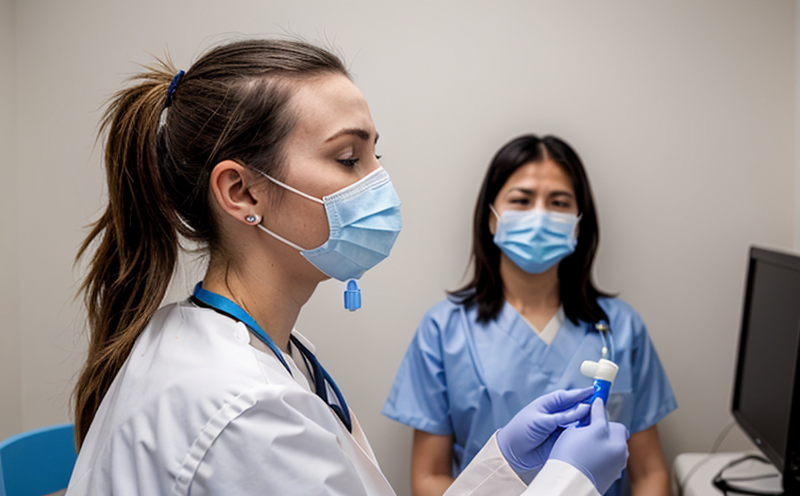Endotoxin Testing in Animal House Air Samples
Ensuring the health and well-being of laboratory animals is paramount in the conduct of research within academic, pharmaceutical, and biotechnology sectors. Endotoxin testing in animal house air samples plays a critical role in maintaining these standards by identifying potential contamination that could adversely affect experimental outcomes and animal welfare.
Endotoxins are lipopolysaccharides derived from the outer membrane of Gram-negative bacteria. Their presence can lead to pyrogenic reactions, inflammation, and other adverse effects on animals, thereby skewing research results or even causing harm. Conducting regular endotoxin testing helps institutions meet regulatory requirements while ensuring robust data integrity.
In this context, our laboratory offers comprehensive services tailored specifically for the analysis of endotoxins in air samples from animal houses. Our team specializes in using validated methodologies to provide accurate and reliable results. This service ensures that your facility adheres to stringent guidelines set forth by relevant authorities such as the European Pharmacopoeia (EP) and the United States Pharmacopeial Convention (USP).
The process begins with collecting air samples from designated areas within the animal house, which are then prepared according to industry best practices. Our team utilizes advanced analytical techniques including the LAL (Limulus Amoebocyte Lysate) test—a standardized method recognized worldwide for its sensitivity and accuracy.
Once analyzed, these samples undergo rigorous quality control checks before final results are compiled into detailed reports. These documents provide not only quantitative values but also interpretative insights that help stakeholders understand the implications of detected endotoxin levels on their operations.
To ensure consistency across all testing phases, we adhere strictly to internationally recognized standards like ISO 17642:2020 and EP 5.1. Such adherence guarantees credibility both internally within your organization as well as externally when submitting reports for regulatory bodies or peer-reviewed publications.
Regular monitoring of endotoxin levels in animal house air is crucial not only from a compliance perspective but also because it supports ethical standards governing animal care. By implementing this service, you demonstrate commitment to maintaining the highest standards of quality assurance and integrity throughout your research processes.
Applied Standards
| Standard Name | Description |
|---|---|
| ISO 17642:2020 | International standard for the detection of endotoxins in medicinal products and their raw materials. |
| USP | United States Pharmacopeial Convention's official method for determining endotoxin levels using the LAL test. |
| European Pharmacopoeia 5.1 | European regulatory guidance specifying limits and methods applicable to pharmaceutical products containing animal tissues or derived materials. |
Industry Applications
The importance of endotoxin testing extends beyond mere compliance; it serves as a vital tool in safeguarding the integrity of experimental results. For instance, in vaccine development, ensuring that no trace amounts of endotoxins remain can prevent false positives or negatives during efficacy trials.
Similarly, when conducting toxicity studies on new chemical compounds, accurate measurement of endotoxin levels helps researchers interpret biological responses correctly without interference from external contaminants. Compliance with these stringent requirements ensures that any observed effects are attributable solely to the substance under investigation rather than unintended variables.
In addition to pharmaceutical applications, this testing is also essential in biotechnology laboratories where recombinant proteins and other complex molecules require sterile environments free from microbial contamination. By incorporating our endotoxin testing service into your quality assurance protocols, you can maintain confidence that all necessary precautions have been taken to protect both personnel health and experimental validity.
International Acceptance and Recognition
- The Limulus Amebocyte Lysate (LAL) test is widely accepted globally for its ability to detect endotoxins quickly and accurately.
- Results obtained through this method are recognized by numerous regulatory agencies including the FDA, EMA, and WHO.
- Our laboratory’s methodologies have been validated against these internationally recognized practices ensuring consistent outcomes regardless of location or jurisdiction.





